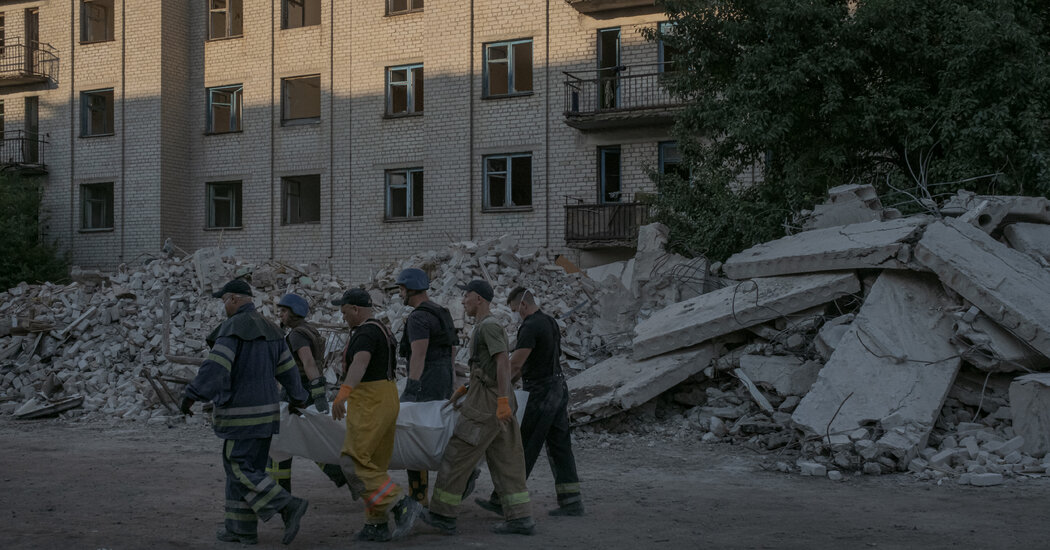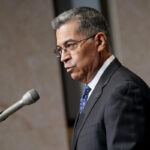
President Vladimir V. Putin will visit Tehran next week for meetings with the leaders of Iran and Turkey, taking him into challenging diplomatic terrain as he seeks to burnish ties with two nations sometimes aligned, and sometimes sharply at odds, with Russia and with each other.
Mr. Putin, who radically limited his travel during the pandemic, has been engaging in a spree of recent diplomacy, seeking to shore up military and economic backing with non-Western countries to counter the West’s military assistance to Ukraine and its sanctions against Russia.
On a visit to Central Asia last week, his first foreign trip since Russia invaded Ukraine, Mr. Putin — who had recently compared himself to Peter the Great — held court among his close allies and insisted that the war was going according to plan.
Mr. Putin’s latest diplomatic push comes as President Biden prepares to travel to the Middle East this week to meet the leaders of Saudi Arabia and other Gulf States.
Mr. Biden’s national security adviser said on Monday that Russia was seeking drones from Iran, including those capable of firing missiles, to make up for its scarcity of unmanned, armed surveillance aircraft on the battlefield. Analysts say that Russia also sees Iran as a newly important economic partner, offering a trade route and expertise in circumventing sanctions and exporting oil.
But Mr. Putin may also have to soothe relations with Iran as Russia eats into its share of the global oil market, while trying to find common ground with Turkey, a NATO member. Over Moscow’s objections, Turkey recently lifted its objections to the alliance expanding along Russia’s borders.
High fuel prices have buoyed Russia’s revenues as it has made gradual military gains in Ukraine, but Western sanctions have still wounded its economy and restricted its ability to build or buy technology for military use.
In Tehran, the Iranian capital, Mr. Putin will also hold peace talks on Syria, a decade-old conflict in which Iran and Russia have backed the government and Turkey has supported an opposing rebel faction. Mr. Putin will meet with President Ebrahim Raisi of Iran and President Recep Tayyip Erdogan of Turkey, as well as holding separate meetings with each, Dmitri S. Peskov, the Kremlin’s spokesman, told reporters on Tuesday.
Mr. Erdogan, whose country shares the Black Sea coast with both Russia and Ukraine, has emerged as the most active mediator between Mr. Putin and President Volodymyr Zelensky. Turkey has been in talks to try to overcome Russia’s blockade of more than 20 million tons of Ukrainian grain exports, which has been intensifying a global food crisis.
Turkey will host delegations from Ukraine, Russia and the United Nations in Istanbul on Wednesday for negotiations on resuming grain shipments, Turkey’s Defense Ministry said.
Iran, long a Russian ally in its confrontation with the West, is becoming even more central to Mr. Putin’s diplomacy because of the war in Ukraine. Mr. Putin met with Mr. Raisi on the sidelines of a regional summit in Turkmenistan last month, and spoke to him on the phone in early June, according to the Kremlin.
“Our relationship is of a truly deep, strategic character,” Mr. Putin told Mr. Raisi in Turkmenistan, noting that trade between the two countries was up 81 percent last year.
At a summit meeting in Uzbekistan in September, Iran is expected to join a multilateral security group, the Shanghai Cooperation Organization, which already includes Russia and China. Sergey V. Lavrov, the Russian foreign minister, last month praised Iran’s accession as a step that would strengthen the organization “as one of the key centers of the emerging multipolar world order,” diluting the global influence of the United States.




